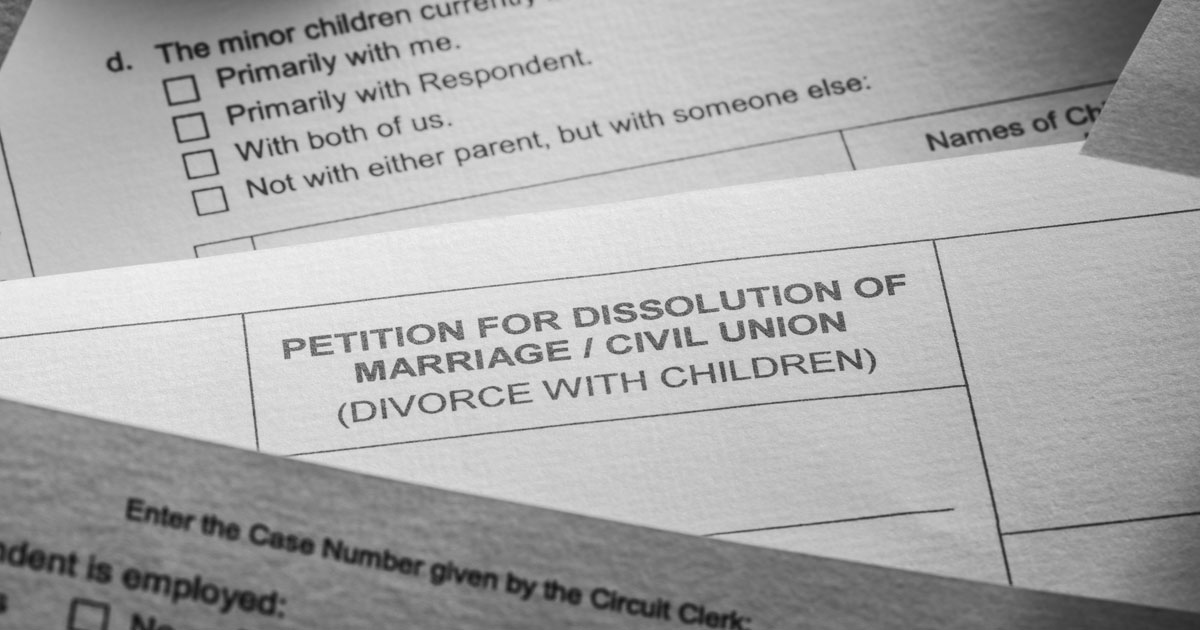When a legal dispute arises regarding a family matter like divorce, separation, alimony, or grandparents’ rights, you’ll likely consider hiring a family lawyer to assist you. However, some individuals forgo seeking help due to financial concerns. While many may believe navigating a family law matter on their own can save them money, the opposite is actually more likely to occur. Family lawyers are trained and experienced in building solid cases to earn compensation for their clients, as well as protect their rights when faced with opposition.
We would like to outline some money-saving tips for hiring a family lawyer to defend you, but we also want you to consider working with our team. Draft My Legal Docs provides Arizonans with a vast array of legal documents necessary to address family law situations, all available with expedited turnaround times. Not only can we provide you with excellent solutions for your family dispute, but we can do so while saving you money.
How Much Does a Family Lawyer Cost in AZ
First, it’s important to reiterate that no family law firm is exactly the same as the next, meaning they’ll all charge different amounts for their services. However, this doesn’t mean you can’t find a family lawyer for an affordable price.
On average, a family lawyer can cost about $250 per hour. However, lawyers may charge up to $600 per hour in some cases. The amount charged can change depending on your scenario and how long your case will take to complete. For instance, if you’re looking for services for a very straightforward case, a lawyer may only charge $250 per hour, and if they’re only needed for a few hours, you may not even spend a full $1,000. However, if you need full representation for a family dispute that lasts several months and requires the collection of evidence, interviewing witnesses, financial disclosures, and more, expect to pay quite a bit more.
This may sound unappealing, and we understand why many feel this way. However, the peace of mind and full services, plus secure protection and safety down the line, may be what you need to proceed with confidence. Family lawyers can be pricey, but if you research your options and determine exactly what you need help with, this might present long-term benefits for you and your family.
Can I Seek Legal Advice for Free?
You might wonder how to get free legal advice in Arizona, and while this is technically possible, the advice and experience a lawyer can provide are much more beneficial. That said, you can contact certain organizations and browse the free legal services they provide. It’s important to remember that these are indeed free, so while they may prove helpful, a lawyer can address more precise details of your case that free services may not cover.

What Is the Average Cost of Divorce in Arizona?
Divorce is by far the most common family law matter in Arizona. As with any family lawyer, there is no set amount of how much they will charge for their services.
There are multiple factors that can influence the final cost of both a divorce and the legal fees, including, but not limited to:
- How many children the couple has
- Business interests, debt, and properties
- Significant assets such as retirement funds and bank accounts
- Litigation
Still, the average cost of a divorce in Arizona totals around $20,000 per spouse, and if your case proceeds to litigation, the total can exceed $40,000. If this seems unattainable to you and you’re wondering, “What is the cheapest divorce in Arizona?” know you can spend as little as $620 on divorce without legal assistance. However, while this may sound enticing to some couples due to the significantly lower price, attempting to go through a divorce without any legal support is both challenging and risky. DIY divorces are incredibly rare in Arizona, and some couples who go through the process this way may not end up with the most favorable results after the divorce is finalized.
Overall, the longer the amount of time it takes to get through your divorce, the more you may have to spend on legal fees. However, it’s crucial to consider legal representation and services so you don’t put yourself at any unnecessary risk.
How To Keep Your Divorce Costs Down
Divorce is likely an emotionally challenging and stressful time for you and your family. It’s understandable why many people wish to keep divorce lawyer costs as low as possible as they heal from this situation. Perhaps even more importantly, keeping costs low may prevent financial strain down the line.

The most efficient way to prevent your divorce costs from rising is to refrain from engaging in unnecessary arguments with your partner. For example, rather than arguing over who owns each possession, leave it to your lawyer to investigate the situation and make the decision according to Arizona’s community property laws. Even better, consider engaging in mediation to solve these issues before litigation becomes necessary. Otherwise, undecided issues must be brought forth to a judge, which can be expensive and unnecessary. ‘
Finally, it’s imperative you are honest and open with your lawyer. Their goal is to help you maintain as many of your rights as possible through this process. Make sure you are forthcoming with all information to make the process go quickly and smoothly.
The Best Tip for Reducing Family Law Fees
While there are strategies you can keep in mind that help reduce your family lawyer costs, there’s one in particular that can benefit you the most: this involves reaching out to the skilled attorneys at Draft My Legal Docs for legal document drafting.
We know how confusing and detail-oriented legal issues can be, but you don’t need to navigate them alone, even if you don’t want to spend money on a full-service attorney. While legal documents can be roadblocks in your case if you complete them inaccurately or fail to file them on time, hiring a legal document service like Draft My Legal Docs can ensure you don’t negatively affect the outcome of your case. Rather than risk losing property or a reduction in child custody due to a miscommunication or documentation error, allow us to help you be successful in the family courtroom.
The legal system in Arizona can only run efficiently with precisely crafted, accurately filed legal documents. Whether these are the initial claims you’re filing for child custody or documents needed to access evidence, we have everything you need to navigate your family matter with ease.
How Does This Work
When you contact the fully licensed attorneys at Draft My Legal Docs, we’ll send you a questionnaire so we can develop a picture of the nature of your case. You’ll tell us about your family law situation, whether it’s divorce, alimony, child custody, or other related matters. After we’ve heard what we need from you, we’ll send you the appropriate documents to fill out prior to your court appearance. However, you won’t be filling these out by yourself; our licensed attorneys, who are well-versed in family law, will instead draft all the documents you need.

Regardless of whether you have concerns about how to answer the questions on a particular document or simply need help keeping your forms accurate, we can assist you via phone call, email, or through our online chat service. You also have the option to update your document, so if something needs changing, a qualified attorney can address your concern.
How Does This Save Money?
You may not understand how to draft your own legal documents, but that’s why we are so passionate about helping Arizona family law clients from all walks of life. Every legal scenario is unique, and if you don’t fully understand what’s required from you when filing a claim, you should seek legal support immediately.
Without help from Draft My Legal Docs, you risk incomplete, inaccurate, or even wrongful documents, as well as missed deadlines and additional court costs. Rather than take this gamble, work with our team at Draft My Legal Docs so we can help you achieve a positive outcome for your case.
Draft My Legal Docs: Affordable Document Services in AZ

Draft My Legal Docs is a 24/7 document drafting service that enables licensed attorneys to examine your situation and craft high-quality documentation that you can use to support your claim. Arizona is known for having a challenging legal system with several hurdles to clear, but we want to streamline this process for you. To learn more about what we do, how we can help you improve your case, and how we can help you save money on your family court case, contact us today.

Jonathan Roeder is one of the founding partners of The Valley Law Group. He is an Arizona native who has dedicated his life and career to the service of others. After graduating salutatorian of his high school class, Jonathan attended beautiful and prestigious Pepperdine University, where he majored in Political Science. During his tenure at Pepperdine University, his passion for helping others grew after securing a clinical position with a residential treatment center for juveniles with substance addictions. Post-graduation, Jonathan returned to Arizona and served as a residential manager for mentally and physically disabled homes.

























